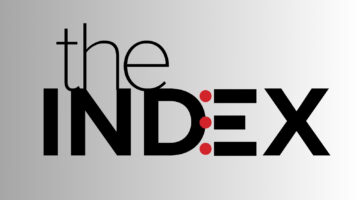
It’s difficult to argue with the belief that a company’s reputation is one of its most valuable assets. A bad reputation can damage trust and negatively impact profits. On the other hand, a good reputation can help a business attract new customers, hire better employees, stand out from competitors and positively impact revenue. One of the central challenges in building and maintaining a strong reputation stems from the information we’re consuming, as it is all too often clouded by disinformation. Misinformation and disinformation are rampant, placing companies under unprecedented pressure to preserve their reputation. Today’s increasingly complex and data driven market is one explanation for this dilemma. For example, generative AI is making it easier to create realistic but misleading content at scale, impacting people’s beliefs and ultimately, diminishing trust. Likewise, the volume of unchecked opinions that can be spread by casual users on social media creates an additional set of challenges around controlling a corporate narrative. Regardless of the cause, effective reputation management solutions are more important than ever for all businesses and industries.
Key challenges in the healthcare industry
Interestingly, the problem of misinformation/disinformation appears to vary in its severity across different industries. The biotech/healthcare space is a particularly good example of an industry plagued by inordinate amounts of misinformation. Patient access and healthcare equity are important factors, but have often been the sole focus of messaging campaigns to the exclusion of other strengths in the industry. The work being done in the healthcare and biotech industries is about far more than just trying to sell more medicine. Just as important is the matter of how conscientiously a company produces its products and how it takes care of its people as well as the communities in which it operates.

Consultants: Help Define What’s Next In Healthcare Benefits
Help shape the future of healthcare benefits by sharing your insights.
Research we partnered on, involving data on 511 publicly traded companies, has shown that companies in the healthcare industry are among the most misunderstood companies in the world. Specifically, perception scores for biotech/pharma/healthcare companies in this study were among the lowest of the 16 industries analyzed. This result means that the general public consistently perceives players in the biotech/pharma/ healthcare space more negatively than what is deserved based on the things these companies actually do on a day-to-day basis. Indeed, this industry had some of the highest scores reflecting actual behavior (e.g., how companies treat their employees, the environment and communities at large).
Why is this significant? Because whenever positive actions on the part of companies in the healthcare sector go unnoticed by the public, corporate reputations end up unfairly penalized. The unrecognized strengths of an industry represent opportunities for heightening awareness, but communications teams must capitalize on these opportunities to boost reputation. Similarly, meaningful improvements in behavior can also impact reputation, and together these changes have cascading positive impacts on financial performance (e.g., share price) – pointing to strategic advantages for companies that measure both their perception (what people are saying about them), and equally importantly, their behavior (what they’re actually doing, relative to their competition). This two-pronged approach enables reputation teams to more accurately communicate the good they’re doing.
Reputation measurement/evaluation strategies
Reputation teams are increasingly turning to artificial intelligence (AI) platforms to try to gain competitive advantage. As the number of AI platforms grows rapidly however, too few users are asking themselves “which models should my AI be using?” Understanding the nature of the analytical tools, including data sources, statistical models, validation procedures, and many other important caveats, is key to knowing whether your models are optimizing for the right reputation factors. AI platforms all promise predictive analytics and time-saving content generation. However, as noted above, reputation measurement is most effective when data are gathered across multiple stakeholders and models compare both public perception and real behavior.

Changes in Nurse Staffing Answer Clinician Demands
The ongoing nursing shortage facilitates high turnover rates since nurses know they won’t have difficulties finding new jobs. In order to retain and attract staff, it’s in a facility’s best interest to understand what nurses want.
A public relations measurement report revealed that 66% of PR professionals say that producing measurable results is critical to increasing the value of PR among stakeholders, pointing to a variety of predictions regarding what the industry will look like in several years. As you might expect, the key is to better align metrics with both communication goals and the broader objectives of executive teams, allowing PR initiatives to drive business outcomes – not just media visibility. Furthermore, the advancement of AI will lead to more SaaS platforms that are dedicated to PR measurement and reporting. However, instead of communicators relying on metrics like “unique monthly visitors”, AI-enabled platforms will uncover systems that align closer to a company’s behavior and revenue goals. Some key steps to consider when using advanced reputation intelligence analytics:
- Move beyond metrics extracted exclusively from traditional survey or polling data. Polls and surveys are expensive and take time to aggregate and analyze. Therefore, polling information is often outdated before results can be interpreted. AI and machine learning tools can help you synthesize public perception data from news and social media. These sources capture a larger fraction of the general public, and data can be processed rapidly, ensuring that sentiment data are relevant.
- Generate insights that not only build on what people think, feel and say, but also provide real-time competitive intelligence that helps predict the actions a company can take to build and protect reputation, outperform peers and engage across multiple stakeholders.
- Obtain industry-tailored analytics that reveal the critical attributes impacting success within your industry. This can help you to gain clarity on your performance in its most relevant context.
- Measure reputation in real-time, developing metrics that increase predictability while unifying company behavior and public perception.
- Identify gaps between behavior and perception to help you better understand how actions impact stakeholder perception, where there are pre-existing communications opportunities, reputational risks, and how these factors influence financial performance.
Practical applications
The dawn of deep analytics has now made it possible to guide your C-Suite and board of directors, building more trust with your stakeholders. On-demand insights can help you in your decision making about what to support and when to speak publicly, when to stay silent and how to take appropriate action. Additionally, predictive data can help you better understand the reputational risks associated with new company acquisitions as well as more effectively prepare for your earning calls.
The list goes on in terms of all the ways you’re now able to improve what you can take into a boardroom through data-backed insights. In the end, companies need data-driven, real-time predictive solutions, with the most accurate insights into what is helping and hurting your reputation, what people think/say about your company, how action/inactions influence your brand’s reputational risk, how that risk is linked to financial performance and what your competitors are doing that you are not (but should be). However, the siren-song of AI should be approached with caution and evaluated through an objective scientific lens. This will ensure that the associated models are preventing the tide of misinformation, rather than contributing to it.
Photo: zhaojiankang, Getty Images
Ryan Calsbeek, Ph.D. is an Evolutionary Biologist and Professor of Biological Sciences at Dartmouth College and is Chief Science Officer at MAHA Global. Calsbeek has published more than 90 peer reviewed scientific papers and more recently his work on biological adaptation has evolved into the study of corporate adaptation. Over the last ten years, he has helped Fortune 500 companies from a variety of industries improve their reputations through the application of evolutionary principles to corporate data sets.
Haider Nazar is the Co-Founder & CEO of MAHA Global. With over two decades of expertise in data, enterprise software and organizational transformation, his leadership spans the growth of numerous companies – including four successful exits and securing over $200M in combined equity and debt financing. Nazar has served dozens of Fortune 500 Brands leveraging advanced technology to drive strategic decision-making. Driven by the belief that integrating corporate reputation with profit motives can drive positive social and environmental change, Nazar continues to pioneer innovative solutions that empower organizations worldwide. His commitment to leveraging data-driven insights underscores his mission to enable impactful decision-making and foster sustainable growth.
This post appears through the MedCity Influencers program. Anyone can publish their perspective on business and innovation in healthcare on MedCity News through MedCity Influencers. Click here to find out how.







